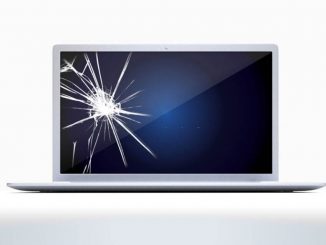When you buy a laptop, do you ever wonder how long it should last? If you don’t, then you should do this. Most people own a laptop these days, and some of them seem to go on forever. Others will pack up in a disappointingly short time.
As you have probably guessed, you need to consider many different factors when predicting the lifespan of a laptop. We will cover the most important things to consider in this article. We will also tell you what steps you can take to make your laptop last longer.
Table of Contents
The Major things to consider for Laptop Longevity
There are so many different laptops out there now, and they are not all built to last a long time. They use different components and have different durability levels. Some laptops just look really flimsy, while others have a very robust look about them. This is never an exact science, but here are the major things that you need to consider:
- Is it a consumer or a business laptop?
- The quality of the components within the laptop
- How you use the laptop
- How much you take care of the laptop
These four things embrace the elements of laptop life. We will take a close look at each one of these things below.

Is it a Consumer or Business Laptop?
There is a difference in quality between a consumer laptop and a business laptop. A consumer laptop is something that you have to perform lightweight tasks such as using social media and composing and replying to emails.
The components used in low-end consumer laptops are not as good as high-end consumer laptops or business laptops. You were probably expecting to hear that. There is an old saying, “you get what you pay for,” which applies to laptops.
You can purchase a consumer laptop for less than $600 these days. If you do, then we predict that it will last for between two and four years. Buying a high-end consumer laptop will increase the probability of it lasting longer to around five years.
Usually, business laptops are in a different class. These laptops are designed to be used every day and have the components to support this. A business laptop will cost more than a consumer laptop, and you can get them with 3-year warranties.
Most business laptops are more robust physically than consumer laptops. For example, they could have a carbon fiber case or even a metal case rather than one made from plastic. In addition, some business laptops will have built-in durability that protects them from knocks and bumps (and worse of all being dropped).
So in terms of longevity, we would say as a guide that a business laptop costing $2,000 and upwards should last for about seven years. If you are willing to pay more than $3,000, you can expect a lifespan of ten years. Please remember that these are all estimates, so don’t take them literally.
The Quality of the Components within the Laptop

If you purchase a laptop with a conventional hard disk drive (HDD), this is always prone to fail. Even the highest quality HDDs can fail. The more you use your laptop, the more likely you will experience a hard drive failure.
Fortunately, if the hard drive fails, it doesn’t mean the end of your laptop. If you are smart about how you organize your files (such as partitioning a “D” drive to store your important files), then replacing them is not too big of a problem.
You need to use a hard drive with adequate storage space. It will be cheaper to buy a laptop with a small hard drive, but you can soon run into trouble with this. The latest Windows operating systems take up a lot of hard drive space, and files are getting bigger all of the time, so we recommend a minimum of 1TB these days.

Solid-state drives (SSDs) are more expensive, but they are faster and have no moving parts. Nowadays, you can get large SSD’s that will provide you with 1TB of storage and more. These are worth investing in if you have the budget.

The type of processor(s) you have in your laptop can be a factor with longevity. If you have the latest Intel Core processors (or the AMD equivalents), then you should not experience any problems in this area.

Having sufficient random access memory (RAM) is another critical factor. Laptops that do not have at least 8GB of RAM will find it hard to deal with modern software. Check to see how much RAM capacity your laptop has, as you may want to upgrade it in the future.

CD/DVD read/write drives are another vulnerable component in your laptop. If you use them a lot, then they will probably fail at some point. They have moving parts and can give up the ghost long before your laptop will. Again, you can replace these, so if your optical disk drive fails, don’t put your laptop in the trash.

How you Use the Laptop
Common sense dictates that if you use many system resource-hungry applications on your laptop, such as video editing, gaming, or graphics, you run the risk of shortening the lifespan of your laptop.
Electronic components such as CPUs, motherboards, and RAM do not usually fail, but if they are under intense pressure, the chances of failure increase. So if you are a “power user,” you might want to knock a year off the estimated lifespan we discussed earlier.
Suppose you just use your laptop for general business applications such as creating documents, spreadsheets, and presentations, sending emails, and using the web. In that case, your laptop should last you for a longer period.
Let’s talk about gaming laptops here. There are many high-end gaming laptops on the market these days that have the power to run the latest games. However, if you are an avid gamer and use your laptop for hours each day playing games, you will probably shorten the lifespan of your machine no matter how well-specified it is.
A gaming laptop can quickly become obsolescent. New games require more and more system resources, and in a short space of time, you could find that your laptop just isn’t up to it. Most serious gamers use desktop machines, as it is a lot easier to upgrade them.

How much you take care of your Laptop
A laptop is designed to be portable so that you can take it with you wherever you go. But this doesn’t mean that they will withstand any level of abuse that you throw at it. No matter how durable and resilient a laptop looks, bashing it around will not make it last longer.
Just about the worst thing that you can do is to drop your laptop. This can do no end to the damage, such as create a crack in the motherboard, which would make it inoperable. You may find that it is cheaper to buy a new laptop than to replace the motherboard.
Laptops don’t like beverages spilled on them, such as water, sodas, coffee, and tea. Electronic components and liquids just don’t mix, so you need to protect your laptop from any spillages. Do you clean your laptop regularly? Laptops can get dusty, and if this gets inside the machine, it can stop the cooling fans from working properly.
There is not much air circulation with modern laptops as they tend to have a thin form factor. So, the last thing you want is for the dust to jam up the works. This can cause components to overheat and fail.
Tips for extending the life of your Laptop
If you want your laptop to last as long as possible, then there are two things that you can do:
- Buy a quality laptop
- Take good care of it
We have already mentioned that you get what you pay for. Well-known laptop brands like Acer, HP, Apple, Samsung, Lenovo, and others will not usually utilize inferior components in their machines because they have a good reputation to uphold. So beware of those ultra-cheap laptops that do not have an established brand.
- Taking care of your laptop is largely common sense. We have already mentioned that laptops do not like liquids spilled on them, so keep all liquids away from your machine. Don’t sit your cup of coffee right next to your laptop – this is asking for trouble. There will be a lot of tears if you accidentally spill it on your precious laptop.
- Keep food away from your laptop as well. You might not think that there is anything wrong with leaving your sandwich next to your laptop, but tiny crumbs from the sandwich can find their way inside and start causing problems.
- Try to use your laptop in a clean environment. If your desk is dusty, then fix this before you place your laptop on it. Dust is a real threat to laptops as it can stop cooling fans from working properly and do other damage. Please wash your hands before using your laptop as dirt from your fingers can find its way inside.
- If you have pets at home, keep them away from your laptop as much as possible. Fine pet hairs can get inside and cause problems. Don’t let your cat sit on your laptop or jump on it! This may seem cute, but it will not help prolong the life of your computer.
- Avoid subjecting your laptop to temperature extremes. Going from a warm place to a cold place (and vice versa) can push your laptop to its limits. Leave a bit of time for your notebook to adjust to the temperature before you use it.
- One of the failings of laptops is that they can overheat quickly. Despite the name “laptop,” we don’t recommend that you place the machine on your lap for a long time. This will probably restrict the airflow, and things can start overheating. Place your laptop in a well-ventilated location.
- Be careful with your laptop screen. Replacement screens are usually costly so take precautions to ensure that there is no risk of damage. Please don’t use harsh chemicals to clean your laptop screen as these can damage it.




Be the first to comment